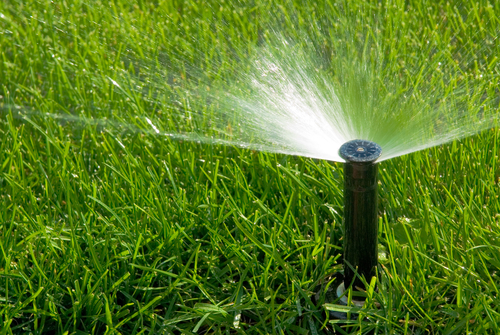
All beautiful lawns require adequate water in order to be luscious. The team here at Chris James put together a few tips for you on the best ways to water your New Jersey lawn.
Figure Out Which Type of Grass You Have
Do different types of lawns need to be watered differently? Should I maintain my yard differently depending on the type of grass I have? How should I water my lawn if I have St. Augustine grass? What about Bahia or Kentucky Bluegrass? These are all questions that must be asked for your lawn to be watered effectively.
If you end up choosing to hand-water your lawn or use sprinklers, it’s helpful to remember that different types of lawns have various needs. Some need more watering, some more sun, some less foot traffic. If you want your lawn to look great, it will help to keep these things in mind. Here is some information on different kinds of grass and the levels of watering they will require:
Warm-Season Grass Type Needs
- Bahia grass grows most from late spring to summer and survives longer periods of drought with a higher tolerance of heat than other warm-season grasses. Bahia grass doesn’t need much maintenance, a lot of water, or nutrient supplements to stay healthy. Bahia Grass can thrive even in poor soil.
- Bermuda Grass is sensitive to the cold and does not survive well in northern states during winter. Spring and summer are best for this grass, but it is high maintenance. Despite this, Bermuda grass can tolerate high foot traffic and is often used on athletic fields. Bermuda grass needs regular watering and even more frequent on sandy soils.
- Centipede Grass grows well in the early and late spring but does not do well in cold. Requires more water and nutrition during low rainfall and drought periods.
- St. Augustine requires low traffic, moderate maintenance, and watering.
- Zoysia grows well in late summer, has high traffic tolerance, is low maintenance enduring high heats and drought periods.
Cool-Season Grass Type Needs
- Kentucky Bluegrass is a cool-season grass that is not tolerant of heat and drought. On the other hand, it is traffic-tolerant and has a beautiful texture.
- Tall Fescue is heat tolerant for a cool-season grass, can survive droughts, but not heavy traffic. It does not spread quickly and it can be difficult to reach bare spots with it.
- Creeping Fescue survives will in shade, grows slowly, and needs only a little to low maintenance. Creeping fescue is also heat and drought tolerant, but can lose color during these times.
- Perennial Ryegrass has great foot traffic tolerance but does not tolerate extreme temperatures well. It does not spread very well and cannot fill in bare spots on its own, which means you may need to seed to fill in gaps.
Consider Installing an Irrigation System
There are various ways to keep your lawn well-watered. If you don’t want to keep up with watering your lawn on a consistent basis, there are options to make your life a little easier.
The smart sprinkler controller is one of those options, which can be controlled completely from an app on your smartphone. With this device, enter your different types of plants and grasses you have on your lawn and it will show you ideal watering schedules for your lawn or garden.
Other options are to install drip irrigation, permanent or built-in irrigation systems, sprinklers, or hand-watering.
Contact us For Lawn Care Maintenance
If you would like one of our experts to come out and help you get set up, contact the team at Chris James today. We’ll send someone out to discuss your lawn care needs and give you solutions of how we can help you.
